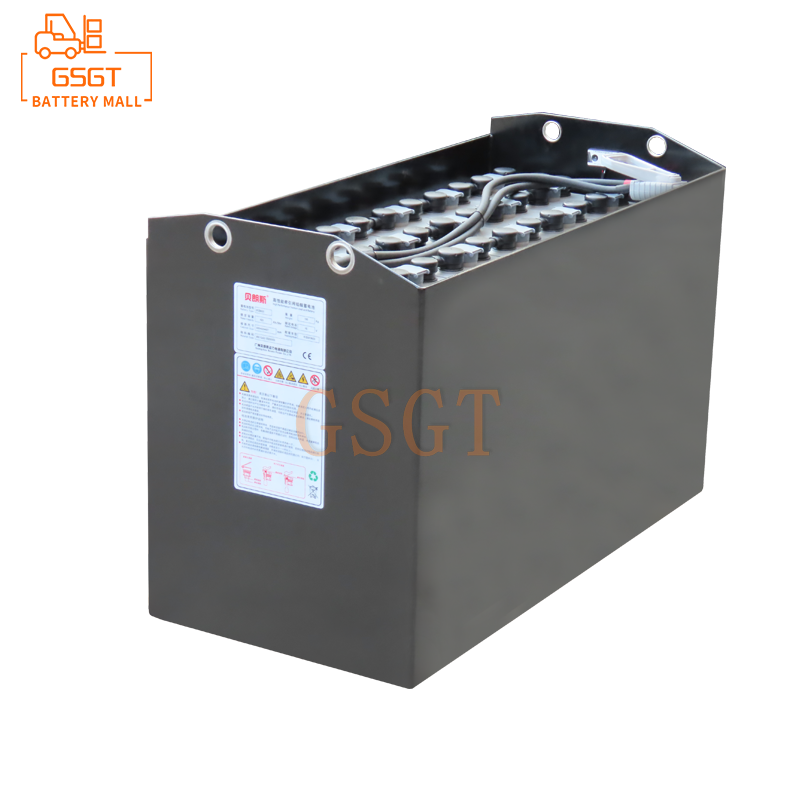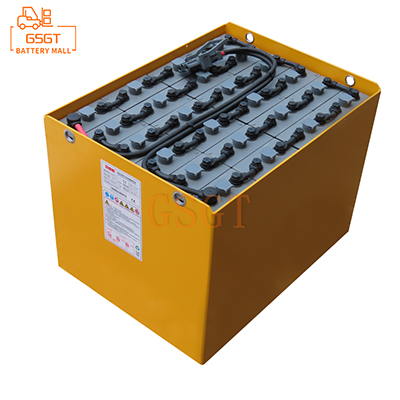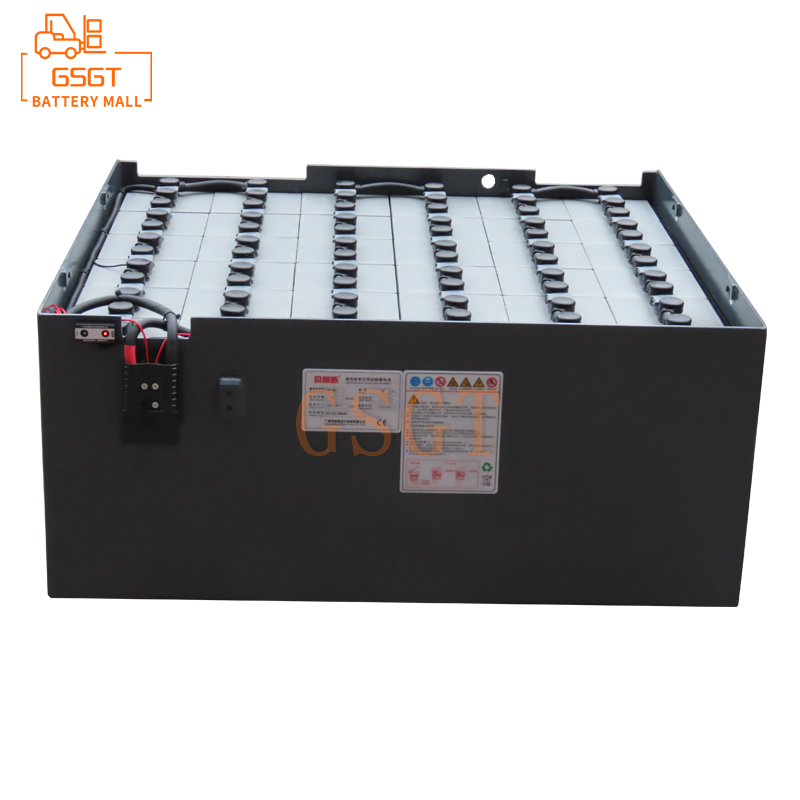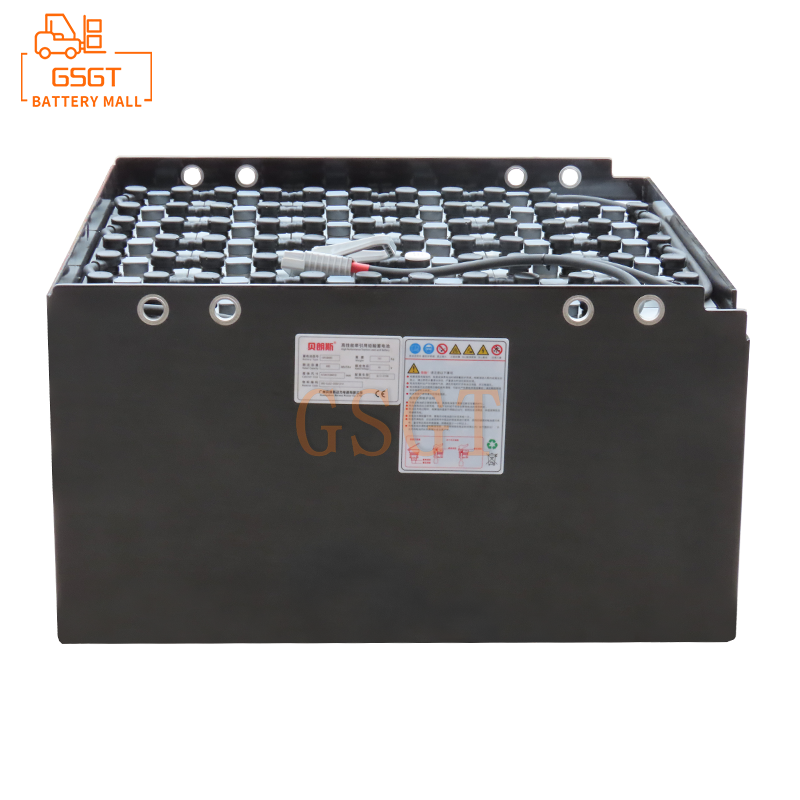Time:2025-05-15 15:28:47
Browse:613
In the modern logistics and warehousing field, forklifts, with their efficient and convenient features, have become the core equipment for goods handling. As the power source of forklifts, the performance and lifespan of lead-acid batteries directly determine the working efficiency of forklifts and the operating costs of enterprises. However, in the actual usage process, there are many common problems in the maintenance of forklift lead-acid batteries. If not handled properly, it will not only affect the battery performance but may even shorten the battery's service life. This article will deeply analyze 10 common problems in the maintenance of forklift lead-acid batteries and provide scientific and practical solutions.
1. Insufficient or overcharging of the battery
In forklift operations, insufficient battery charging or overcharging is one of the most common problems. Some operators, in order to save time, put the battery into use without fully charging it, or fail to cut off the power in time after the battery is fully charged, resulting in overcharging. Insufficient charging will keep the battery in a state of low charge for a long time, accelerate the sulfation of the plates and reduce the battery capacity. Overcharging will cause the battery to heat up, accelerate the evaporation of the electrolyte and shorten the battery's service life.
To solve this problem, enterprises should strictly standardize the charging process and formulate a reasonable charging schedule. When the battery power remains at 20% to 30%, it should be charged in time, and each charging time should be controlled within about 8 to 10 hours. At the same time, it is recommended to choose a charger with intelligent protection function. When the battery is fully charged, the charger can automatically cut off the power to avoid overcharging. In addition, regularly inspect and maintain the charger to ensure its stable performance.
2. The electrolyte level is too low
During the operation of lead-acid batteries, the moisture in the electrolyte gradually decreases due to electrolysis and evaporation, resulting in an excessively low electrolyte level. If not replenished in time, the plates will be exposed to the air, causing sulfation and oxidation of the plates, which will seriously affect the battery performance. Some operators pay insufficient attention to the electrolyte level and fail to check it regularly, which has led to a series of problems.
The key to solving the problem of low electrolyte level lies in establishing a regular inspection system. It is recommended to check the electrolyte level at least once a week, and the level should be maintained 10 to 15 millimeters above the plates. When the liquid level is too low, distilled water or special lead-acid battery replenishment solution should be added. It is strictly forbidden to use tap water, as impurities in tap water will affect the battery performance. At the same time, when adding the electrolyte, be careful not to spill it. If it spills accidentally, rinse it with clean water in time to prevent corrosion of the battery casing and forklift components.
3. The surface of the battery is dirty
In the working environment of forklifts, the battery surface is prone to dust, oil stains and electrolyte residues. These dirt not only affect the appearance of the battery, but may also cause surface leakage of the battery, reduce battery performance, and even trigger short-circuit faults. However, many enterprises neglect the cleaning of the battery surface, believing that it has little impact on battery performance.
Regular cleaning of the battery surface is an effective measure to prevent dirt problems. The operator should wipe the battery surface with a clean damp cloth every week to remove dust and oil stains. For stubborn stains, a dedicated battery cleaner can be used for cleaning. During the cleaning process, it is necessary to prevent water from entering the battery interior. At the same time, pay attention to checking whether the battery casing is damaged. If any damage is found, it should be repaired or replaced in time.
4. Unbalanced battery pack
Forklift lead-acid batteries are usually composed of multiple individual batteries connected in series to form a battery pack. During the usage process, due to the performance differences of each individual battery and the varying usage environments, the battery pack may become unbalanced, that is, the voltage, capacity and internal resistance of each individual battery are inconsistent. An unbalanced battery pack can cause some individual cells to overcharge and discharge, accelerate battery aging, and reduce the performance and lifespan of the entire battery pack.
To solve the problem of unbalanced battery packs, the method of regular equalization charging of battery packs can be adopted. Equalization charging refers to the process of continuing to charge at a low current for a period of time after normal charging, so that the power levels of each individual battery tend to be consistent. In addition, a battery pack equalizer can be used to monitor the status of each individual battery in real time and make automatic adjustments. At the same time, when replacing batteries, single batteries from the same batch and with similar performance should be selected to avoid imbalance in the battery pack due to excessive performance differences.
5. The battery temperature is too high
During the long-term continuous operation or charging process of forklifts, the battery generates a large amount of heat. If the heat is not dissipated in time, it will cause the battery temperature to be too high. High temperatures will accelerate the chemical reactions inside the battery, speed up the evaporation of the electrolyte, intensify the aging of the plates, and seriously affect the performance and lifespan of the battery. In addition, high temperatures may also cause safety accidents such as battery swelling and explosion.
To prevent the battery from overheating, it is essential to ensure that the forklift operates in a well-ventilated environment and avoid using and charging it in a closed and high-temperature setting. Secondly, regularly inspect the battery's cooling system to ensure that components such as the cooling fan and cooling holes are functioning properly. During the hot summer season, the continuous operation time of forklifts can be appropriately reduced, and the charging intervals can be increased to prevent the battery from remaining in a high-temperature state for a long time. If the battery temperature is found to be too high, its use should be stopped immediately. Wait until the battery cools down before charging or operating again.
6. Plate vulcanization
Plate sulfation is one of the common faults of lead-acid batteries, mainly manifested as the formation of white and hard lead sulfate crystals on the surface of the plates. These crystals can hinder the chemical reactions of the battery, reducing its capacity and performance. Plate sulfation is usually caused by reasons such as long-term insufficient charging, excessive discharge, impure electrolyte or too low temperature of the battery.
The key to preventing sulfation of the plates lies in maintaining the good working condition of the battery. Charge strictly in accordance with the charging specifications to avoid over-discharging the battery. When the battery power drops below 20%, charge it promptly. Regularly check the purity of the electrolyte. If impure electrolyte is found, it should be replaced in time. In the low-temperature environment of winter, insulation measures can be taken, such as wrapping the battery with an insulation cover or storing the battery in a warm room to prevent sulfation due to excessively low temperatures. For batteries that have already undergone sulfation, equipment such as pulse repair devices can be used for repair, but the repair effect varies depending on the degree of sulfation.
7. Loose or oxidized connecting wires
During the operation of a forklift, due to vibration and jolting, the connection wires of the battery are prone to loosening. Meanwhile, the terminals of the connecting wires will oxidize during long-term use, resulting in an increase in contact resistance and affecting the normal charging and discharging of the battery. Loose or oxidized connecting wires not only reduce battery performance but may also cause safety accidents such as fires.
It is crucial to regularly check the tightness of the battery connection wires and the oxidation degree of the terminals. The operator should check the connecting wires once a week to ensure they are firm and free from looseness. For oxidized terminals, sandpaper or a dedicated terminal cleaner can be used for cleaning to remove the oxide layer, and then apply an appropriate amount of conductive paste to reduce the contact resistance. When installing the connecting wires, make sure that the terminals are in close contact with the battery posts to avoid heat generation due to poor contact.
8. Neglecting regular battery maintenance
Many enterprises believe that as long as forklifts can operate normally, there is no need for regular battery maintenance. This notion is incorrect. Lead-acid batteries need regular maintenance and care to maintain good performance and extend their service life. Neglecting regular battery maintenance will lead to the gradual accumulation of battery problems, eventually affecting the normal use of forklifts.
Enterprises should formulate a comprehensive battery maintenance plan. In addition to the daily maintenance items mentioned above, such as checking the electrolyte level, surface cleaning, and inspecting the connection lines, they should also conduct regular deep maintenance on the batteries. For instance, conduct a comprehensive inspection of the battery every six months, including the measurement of parameters such as voltage, capacity, and internal resistance, to assess the battery's performance. The battery is activated once a year. Through special charging and discharging methods, the active substances on the battery plates are activated to restore the battery capacity.
9. Incorrect Use of chargers
Different models and specifications of forklift lead-acid batteries have different requirements for chargers. Some operators, when using chargers, do not pay attention to the compatibility between the charger and the battery. They use other chargers at will or do not operate in accordance with the instructions of the charger, which can cause serious damage to the battery. For instance, using a charger with excessively high voltage or excessive current can lead to overcharging of the battery and accelerate its aging. Using a low-quality charger may lead to problems such as unstable charging and incomplete charging.
To prevent battery damage due to incorrect use of chargers, enterprises should strictly select the appropriate charger in accordance with the requirements of the battery manual and ensure that the performance parameters of the charger match those of the battery. At the same time, strengthen the training of operators to enable them to master the correct usage method of chargers and avoid problems caused by improper operation. In addition, regularly maintain and inspect the charger to ensure its stable and reliable performance.
10. Lack of professional maintenance knowledge
The maintenance of lead-acid batteries in forklifts requires certain professional knowledge and skills. However, many operators in enterprises lack relevant knowledge and are unable to promptly detect and handle problems with the batteries, which leads to minor issues evolving into major malfunctions. In addition, some enterprises do not have professional battery maintenance personnel and have not established a complete maintenance management system, which also brings difficulties to battery maintenance.
To solve this problem, enterprises should enhance the training of operators, regularly organize battery maintenance knowledge lectures and skills training, and improve the professional level of operators. At the same time, professional battery maintenance personnel can be hired to be responsible for the daily maintenance and troubleshooting of the battery. In addition, it is necessary to establish and improve the battery maintenance management system, clarify the responsibilities and work processes of each position, and ensure that the battery maintenance work is standardized and normalized.
To sum up, these 10 common issues in the maintenance of forklift lead-acid batteries cover multiple aspects such as charging, electrolyte, cleaning, balancing, temperature, plates, connecting wires, maintenance, chargers, and personnel knowledge. Only when enterprises fully recognize the severity of these problems, adopt scientific and effective solutions, and strengthen the daily maintenance and management of batteries, can they ensure the stable performance of forklift lead-acid batteries, extend the service life of batteries, reduce the operating costs of enterprises, and improve the efficiency of logistics and warehousing operations.

$2450

$3405

$4045

$5710

MESSAGE
Professional And Efficient
Security
Affordable Price
Professional Services